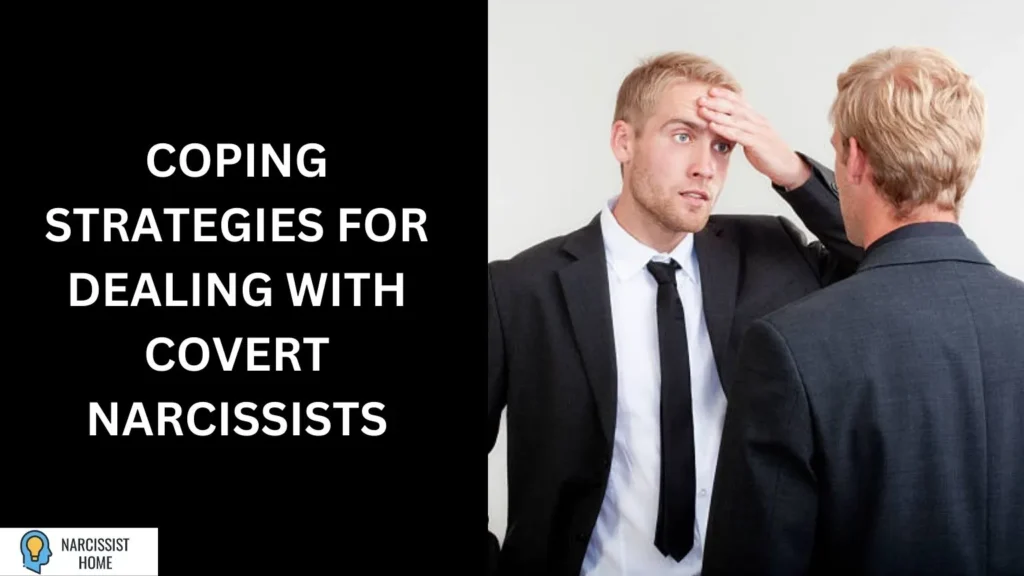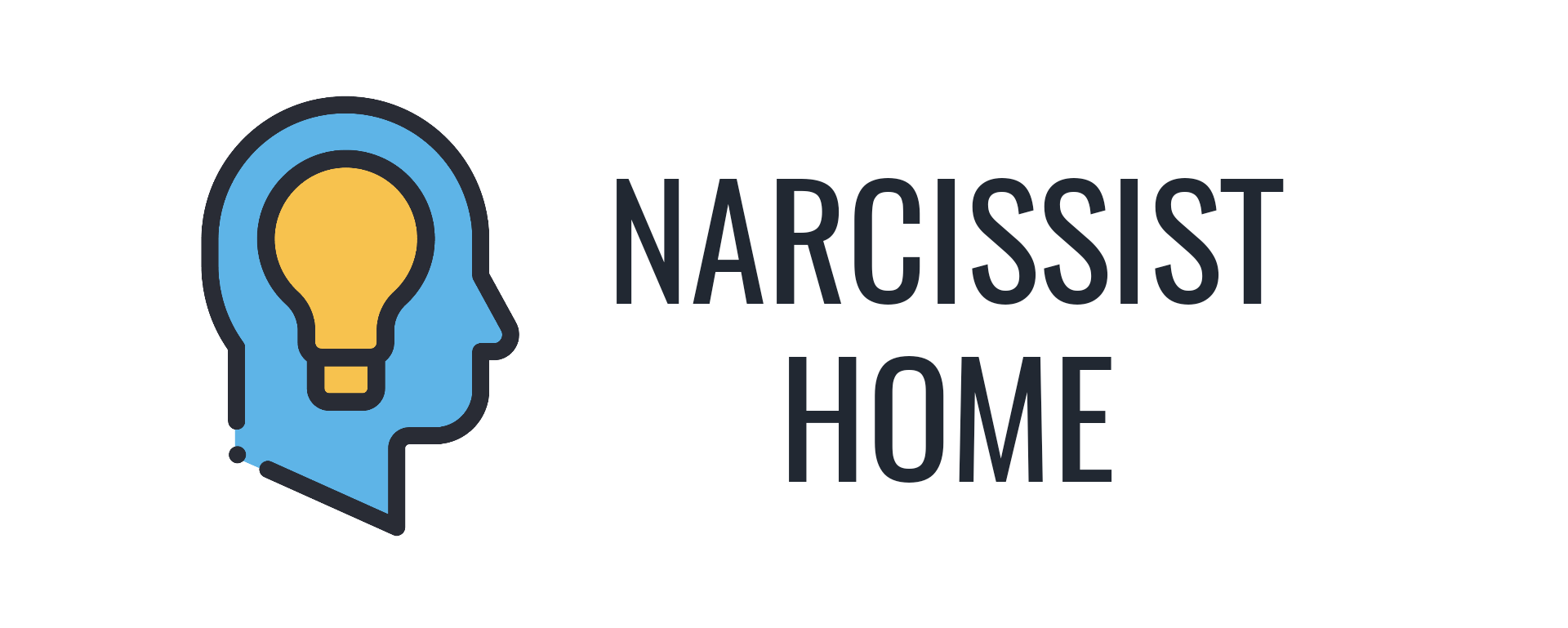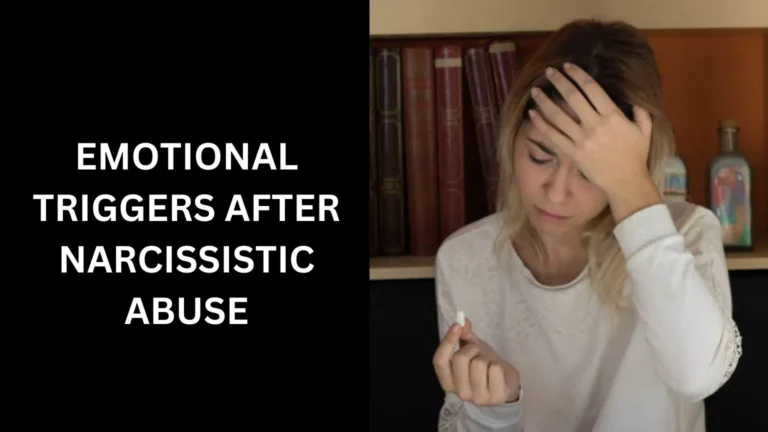What Are Covert Narcissists? Guide of 2024
Narcissism is often associated with grandiosity and attention-seeking behaviors, but there’s another, more insidious type: covert narcissism.
What Are Covert Narcissists? Unlike their overt counterparts, covert narcissists are masters of disguise, hiding their self-centeredness behind a facade of humility and victimhood.
In this article, we delve into the world of covert narcissists, exploring their traits, behaviors, and the impact they have on those around them.

Understanding Narcissistic Personality Disorder (NPD)
Narcissistic Personality Disorder (NPD) is a mental condition characterized by a pervasive pattern of grandiosity, a need for admiration, and a lack of empathy.
While overt narcissists exhibit these traits overtly, covert narcissists do so more subtly and covertly.
Understanding the different manifestations of narcissism is crucial for recognizing and addressing its effects.
What Are Covert Narcissists?
Covert narcissists are individuals who display narcissistic traits but in a more subtle and concealed manner compared to their overt counterparts.
They often appear shy, reserved, and empathetic on the surface, but underneath, they possess a deep sense of entitlement, grandiosity, and a need for admiration.
Covert narcissists manipulate and control others through passive-aggressive behavior, victimhood, and playing the role of the martyr.
Their covert tactics can be difficult to detect, making them adept at disguising their narcissistic tendencies while still causing significant harm to those around them.
Spotting Covert Narcissists

Identifying covert narcissists can be challenging due to their ability to blend in and appear harmless. However, some subtle signs and behaviors may indicate someone is a covert narcissist.
They often present themselves as victims, seeking sympathy and validation while covertly manipulating others to meet their needs.
Contrary to overt narcissists who boast about their accomplishments, covert narcissists may downplay their achievements and use self-pity as a means of gaining attention and control.
Psychological Mechanisms at Play
At the core of covert narcissism are complex psychological mechanisms aimed at maintaining a facade of innocence and victimhood while exerting power and control over others.
These individuals may employ gaslighting, manipulation, and passive-aggressive tactics to manipulate and undermine those around them.
Their covert nature makes it difficult for others to recognize their true intentions, allowing them to perpetuate their toxic behaviors unchecked.
Impact on Relationships and Interactions

The influence of covert narcissists extends beyond individual interactions, often affecting the dynamics of family relationships, friendships, and professional settings.
Their subtle manipulation and emotional abuse can leave lasting scars on those closest to them, eroding trust and creating a sense of confusion and self-doubt.
Recognizing and addressing these patterns is essential for preserving one’s mental and emotional well-being.
Emotional Abuse and Manipulation
Covert narcissists engage in subtle forms of emotional abuse and manipulation, such as gaslighting, invalidating their partner’s feelings, and controlling their behavior through guilt and manipulation.
Difficulty Establishing Trust
Due to their deceitful and manipulative nature, covert narcissists make it difficult for others to trust them.
Their lack of empathy and genuine concern for others erodes trust and creates a toxic dynamic in relationships.
Self-Doubt and Isolation
Victims of covert narcissistic abuse often experience feelings of self-doubt, inadequacy, and isolation.
They may question their own perceptions and reality, feeling trapped in a cycle of manipulation and emotional turmoil.
Coping Strategies for Dealing with Covert Narcissists

Dealing with covert narcissists requires a combination of self-awareness, assertiveness, and boundary-setting.
Establishing clear boundaries and refusing to engage in manipulative tactics is crucial for protecting oneself from their influence.
Seeking support from trusted friends, family members, or mental health professionals can also provide validation and guidance in navigating these challenging relationships.
Overcoming the Influence of Covert Narcissists
Recovering from the effects of covert narcissism involves reclaiming one’s sense of self-worth and rebuilding damaged relationships.
This process may require introspection, therapy, and a commitment to self-care and personal growth.
By breaking free from the cycle of manipulation and emotional abuse, individuals can regain control of their lives and move forward with confidence and resilience.
People also ask
What does a covert narcissist want?
A covert narcissist wants admiration, validation, and control, but they pursue these desires in subtle and manipulative ways.
They crave attention and admiration while maintaining a facade of humility and victimhood.
Their ultimate goal is to fulfill their own needs and desires while avoiding accountability for their actions.
How do covert narcissists treat their partners?
Covert narcissists often manipulate and control their partners through subtle means such as guilt-tripping, gaslighting, and emotional manipulation.
They may appear supportive and caring on the surface but will exploit their partner’s vulnerabilities for their gain.
Their behavior can lead to feelings of confusion, self-doubt, and emotional abuse in their partners.
How do you tell someone they are a covert narcissist?
Telling someone they are a covert narcissist can be challenging, as they may not be receptive to feedback that challenges their self-image.
It’s important to approach the conversation with empathy and understanding, focusing on specific behaviors rather than labeling them outright.
Using “I” statements and providing examples of how their actions impact others can help convey your concerns while minimizing defensiveness.
However, it’s essential to prioritize your own safety and well-being in the process.
How do you know if you’re a covert narcissist?
Recognizing if you’re a covert narcissist involves honest self-reflection and awareness of your behavior patterns.
Look for signs such as a constant need for validation, a tendency to play the victim, difficulty accepting criticism, and manipulating others subtly for personal gain.
Seek feedback from trusted friends or a therapist to gain perspective on your behavior and its impact on others.
Conclusion
In Conclusion, Covert narcissism poses a unique challenge due to its subtle and deceptive nature.
Individuals can better protect themselves from manipulation and abuse by understanding the traits and behaviors associated with this personality type.
Building awareness, setting boundaries, and seeking support are essential steps in overcoming the influence of covert narcissists and reclaiming one’s autonomy and self-esteem.






